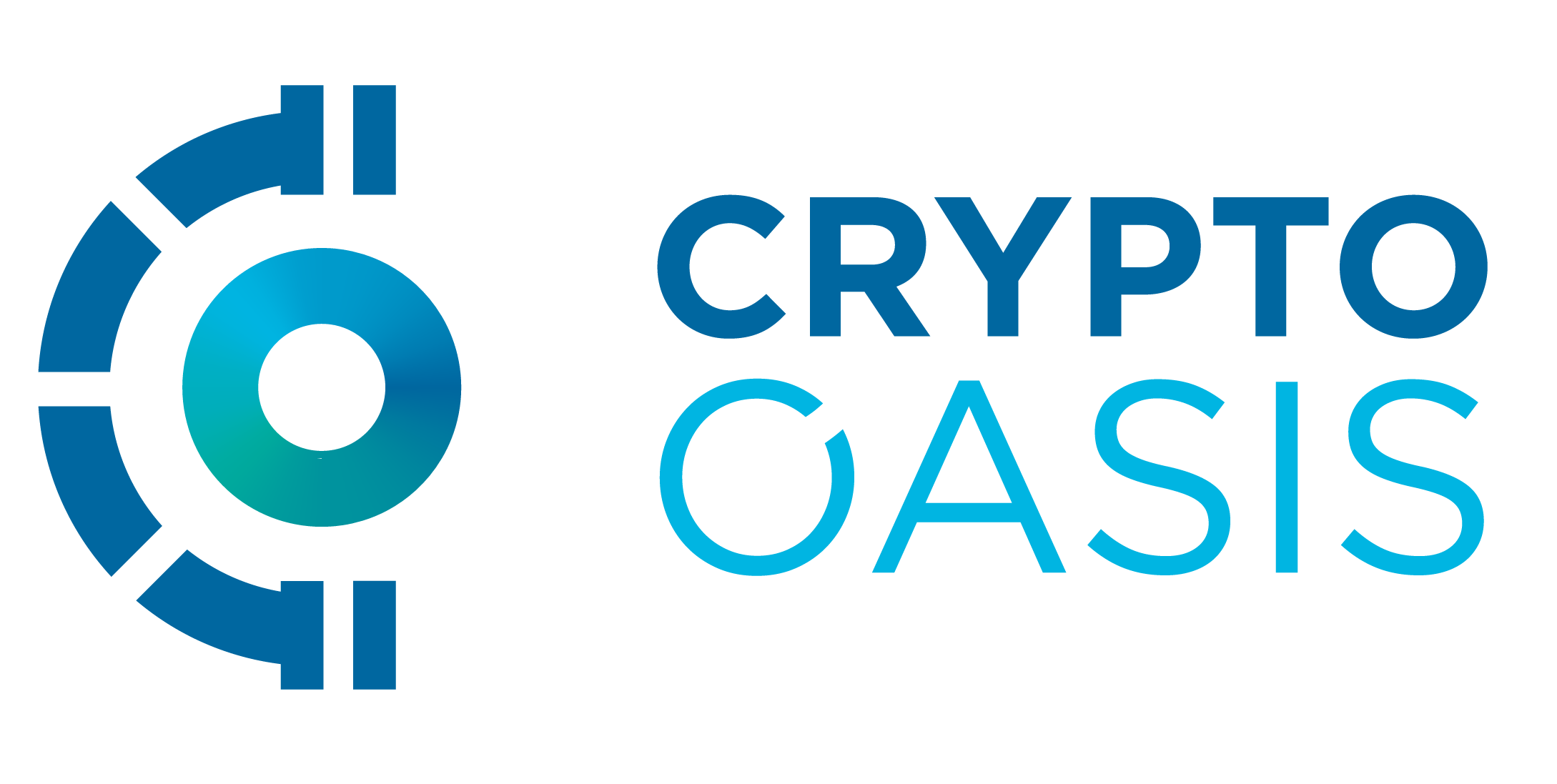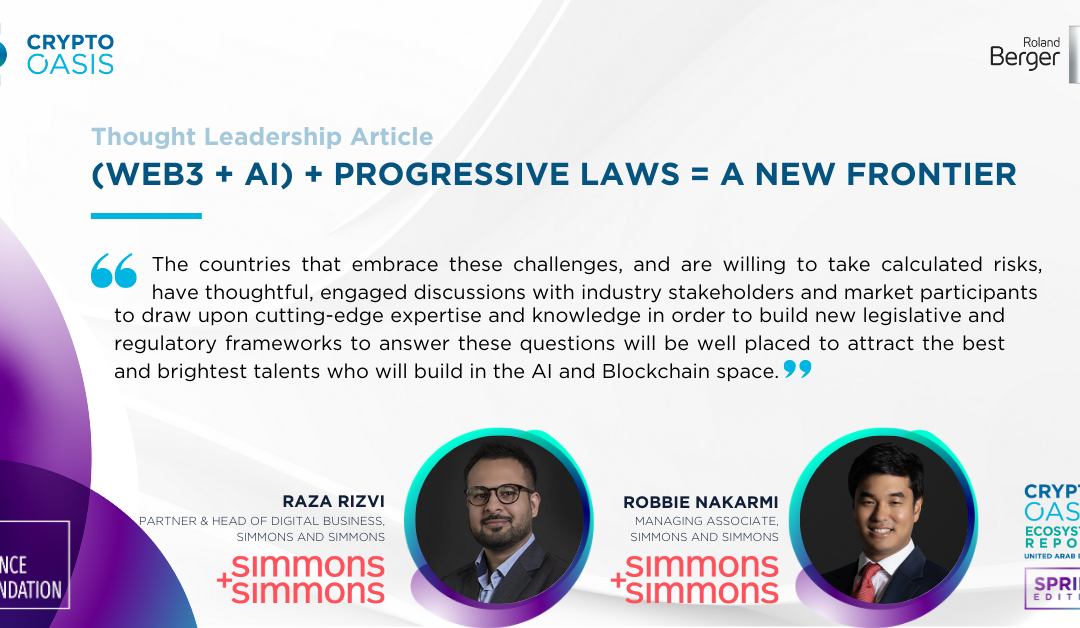We live in a time of seemingly exponential advancements in technological capability. Nowhere is this more evident than in the development of Blockchain technology, including the advent of digital assets (such as crypto), with a myriad of potential applications affecting all aspects of society. And since the last Crypto Oasis report, there has been intense debate about AI, particularly with respect to generative AI and the use of ChatGPT – again, with wide ranging applications. When these two domains collide, there’s a confluence of legal and regulatory issues which either accelerate or put brakes on the movement towards an exciting new digital frontier. Lawmakers in the UAE have understood this as well as anyone else.
Legal and regulatory issues are no strangers to emergent technologies. The advent of the internet in the 1990s was no different, raising fundamental questions about online identity, privacy, and security. While the vast capabilities of Blockchain and third-generation internet technologies came into the public eye in recent years through the rise in use and recognition of cryptocurrencies such as Bitcoin and Ethereum, and regulatory interest followed due to the intersection with traditional financial services, relatively little attention has been devoted to the potential interaction of AI and other Blockchain-based technologies. The two technologies in tandem will pose unique and challenging questions: if an engineer uses generative AI to develop a codebase for the development of a new and innovative decentralised finance protocol, who in the end is responsible and indeed, liable under the law, for flaws that may lead to hacks and exploits that cause the loss of user funds? The engineer, or the user that creates the prompts to which the generative AI responds? Or the AI itself?
For example, an NFT, a well-recognised manifestation of Blockchain technology, could be turned into a live or intelligent NFT, that is no longer static and unchangeable, but changes in real time, using AI technology to enable interactive abilities. An intelligent or live NFT would be able to use AI to receive and absorb new metadata to update itself and potentially shape its future interactions and personality. A live or intelligent NFT representing the ownership of a car or house would be able to use AI to update itself following the receipt of metadata concerning a transaction such as a sale of the house, or even, if it sustains damage or an accident. Indeed, in the context of a live NFT avatar of a human player in a multiplayer metaverse, there could be profound implications as in-game characters that are not human controlled non-playable characters (NPCs) become more interactive and lifelike – indistinguishable for all intents and purposes from a human player. What happens if the AI absorbs and interprets metadata incorrectly and lists a building as being owned by a different person or entity to its true owner? What happens if an NPC goes off-script and a human player makes a financial decision based on the NPC’s advice within an in-game metaverse? The questions regarding not only liability, but what is considered to be a moral and ethical public policy, pose challenging questions for lawyers and non-lawyers alike.
The countries that embrace these challenges, and are willing to take calculated risks, have thoughtful, engaged discussions with industry stakeholders and market participants to draw upon cutting-edge expertise and knowledge in order to build new legislative and regulatory frameworks to answer these questions will be well placed to attract the best and brightest talents who will build in the AI and Blockchain space. The Middle East, and in particular, countries such as the United Arab Emirates and Saudi Arabia, with their demonstrated interest and commitment to developing extensive technology ecosystems, stand to gain from the coming revolutions in these technologies that will change our daily way of life.
To complement pioneering attractive new regulatory frameworks for Blockchain and crypto, the UAE has doubled down on its digital ambitions by enabling a thriving AI industry. Preparing the country for a future in which digital and technological enablement cuts across all industries and sectors is clearly a priority for the state, as evidenced by the creation of the world’s first dedicated government entity: the Ministry of Artificial Intelligence, and the world’s first AI-focused higher education institution: the Mohammed Bin Zayed University of Artificial Intelligence. And beyond the centres of AI excellence at an academic and policy level, we have seen capital investment in AI both from government-backed investors and the ever maturing venture capital eco-system.
The UAE has shown that legal risk issues in crypto can be confronted head on. The enablement of VARA and its suite of legal instruments as well as the financial services regulators’ refreshingly open and progressive views conceptually difficult matters such as DLT foundations, copyright ownership in smart applications and code, venture studio regulation, and personal data protection legislation dealing with processing via artificial intelligence and autonomous and automated systems are all things that, in the last year, the UAE has pushed forward.
As with any emerging market, questions still remain on practical enforcement matters and the style of regulatory policing that will be seen in each of these exciting domains but there is no doubt that the region is better placed than any to use laws and regulation to not only passively accept emerging technology but actively embrace and adopt emerging technology.

